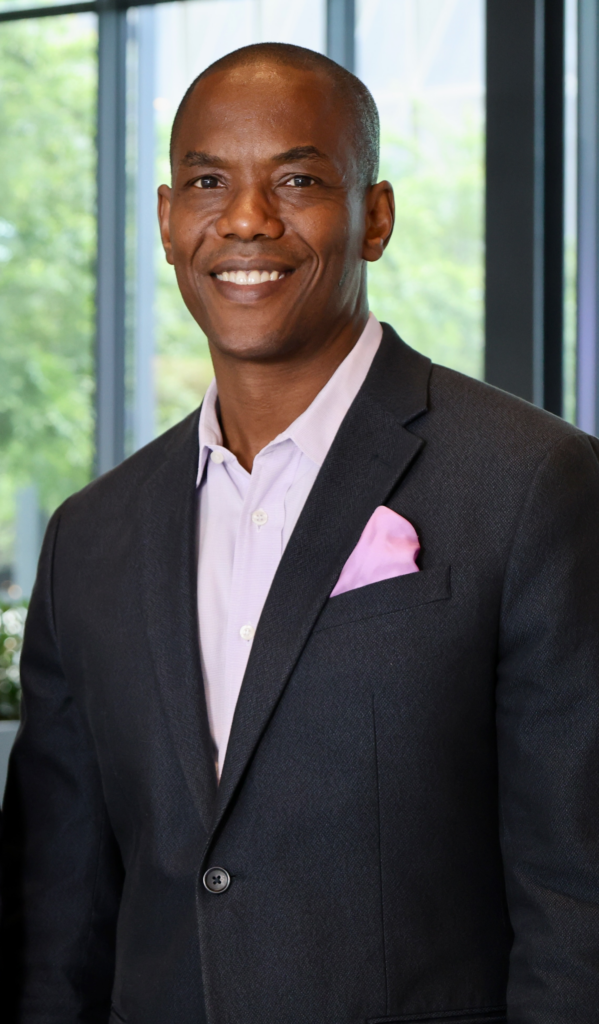The Association of Corporate Counsel’s Houston chapter and The Texas Lawbook recently named Hewlett Packard Enterprise as a finalist in the 2023 Houston Corporate Counsel Awards for their Achievement in Diversity and Inclusion.

In this Q&A, HPE’s Jude Andre, who chairs their legal department’s diversity, equity and inclusion committee, discusses with The Lawbook’s Pro Bono/DEI writer Natalie Posgate how law firms can broaden the diversity pipeline, the importance of legal departments encouraging employees to come as they are to work, and tips for law firms on retaining minority associates.
[Editor’s note: this Q&A has been edited for brevity and clarity].
Texas Lawbook: What do you see as the biggest challenges for in-house counsel and GCs of Texas companies regarding diversity?
Jude Andre: In terms of what lies ahead, in Texas the concern here is not losing the gains that have been made and trying to find that balance between fighting for what you have, but also to lead things within current laws and regulations. If you look at public institutions in Texas, some are losing funding for DEI initiatives. What’s next? Are they going to start targeting pro bono initiatives because some are dedicated to help people that don’t have much and tend to fall in underrepresented groups?
It’s important to continue to convince people internally that it matters to continue to fight for these things, to be open no matter what’s happening outside, to continue to create space for all people of all backgrounds of whatever gender or nongender that they identify with and just let the legal battles outside figure it out. It’s about being a good person, a good department and a good company to work for. Most people can feel when they’re doing right and wrong. We want to continue to establish a culture where people feel comfortable, people feel safe and people feel OK to express themselves and bring themselves to work as they are, and not have to feel like they have to worry at work about what the governor signed last week.
For Natalie Posgate’s full length profile of the HPE team behind their achievements Click Here.
Lawbook: Year after year, The Lawbook publishes reports on law firm diversity. Truthfully, the numbers are depressing. Law firm leaders almost always blame the pipeline for not having enough diverse attorneys. Two questions: 1) Are they right to blame the pipeline, and 2) are there answers to fixing the pipeline that you have seen?
Andre: The legal field has been historically very conservative. At one time, only men were lawyers, and then the profession started adding historically underrepresented groups. There’s still a dislinear effect of conservatism in the law. All of that needs improvement. It’s slow. We’ve always worked at a snail’s pace in the legal field compared to, let’s say, technology.
In terms of fixing the pipeline, law firms are not 100 percent wrong, but they’re not 100 percent right either. You have to go to places during recruiting that have diverse candidates, and you have to be able to trust that you will get the best candidate out of there or someone who will fit in the culture. If law firms just look at GPAs, grades and class rank, they’re going to miss out on a lot of people. If law firms are doing work through a DEI committee, they need to empower the committee — not just words. They need to fully empower the committee, support the committee and initiatives to make diverse lawyers feel at home.
Lawbook: We’ve also learned through our reporting that it’s not simply the pipeline at issue — the reason why firms struggle appears to be a much more complex answer. One major factor is that even if a law firm’s incoming class of associates is wonderfully diverse, the struggle is in retaining diverse associates after a few years. What are your thoughts on this?
Andre: I think they need to invest in those associates. If a firm is investing in them — not just financially, but in their career — and in things they care about, and like they’re truly being invited at the table to be on complex cases or being in front of a client, it goes a long way. I think sometimes the reality with diverse candidates is the mindset of, “I don’t feel like the firm is really trying to hold on to me. If I left, I don’t think they would miss me.”
At one point in my career I helped applicants file for DACA. My firm empowered me by giving me the time and space to do that, and the firm was a contributor to the program, and it meant the world to me. Finding things like that or other initiatives that minorities or underrepresented candidates care about — or personal interests — and supporting them will make them feel like you value them. Maybe they don’t like golf or football or going skiing in Vail is not their thing. Find what people care about. That’s an investment that you need to make with those candidates that don’t fit into that single box.
